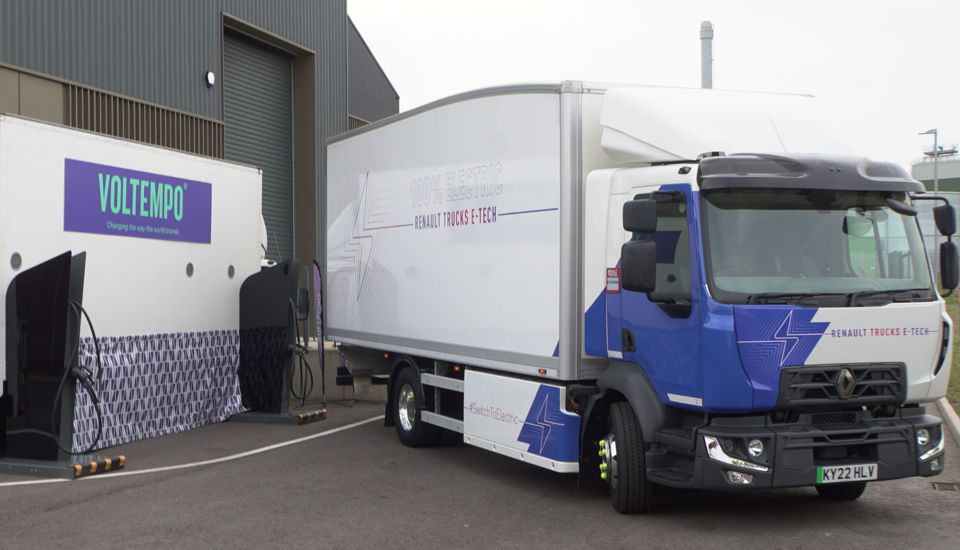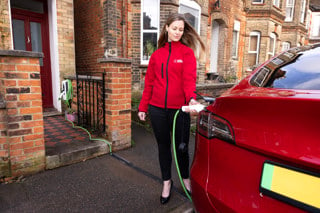The 13 founding members of the eFreight 2030 consortium have been revealed to help shape the future of zero emission HGVs.
Part of the UK Government’s Zero Emission HGV and Infrastructure Demonstrator Programme, funded by the Department for Transport (DfT) in partnership with Innovate UK, the consortium’s members include fleet operators Welch’s Transport, Expect Distribution, Kuehne and Nagel, Maritime Transport, Menzies Distribution and Wincanton.
Retailer Marks and Spencer, vehicle manufacturers DAF Trucks, Renault Trucks and Scania and software provider Dynamon are also involved, along with charge point manufacturer and eFreight 2030 project lead Voltempo Group, and charging hub owner and operator, Fleete Group.
Chairman of the eFreight 2030 consortium and former Secretary of State for Business, Innovation and Skills, Sir Vince Cable, said: “We are delighted to announce the line-up of the eFreight 2030 founding members.
“Each member has a longstanding history and experience in transport and logistics and is contributing significantly to the consortium’s shared vision to demonstrate how eHGVs can replace conventional HGVs at scale using British technology.
“The bringing together of so much operational and technical experience within the eFreight 2030 consortium offers a unique opportunity to decarbonise the road freight transport sector in the coming months and years. We look forward to sharing many specific examples as the programme advances.”
Over a multi-year demonstration, the eFreight 2030 consortium is introducing 100 of the latest HGV tractor units and 32 new charging locations.
In addition to the consortium fleets, eFreight 2030 aims to reach out to the wider industry and has reserved a number of vehicles for shorter term use by associate members of the consortium.
This, it says, will enable smaller operators to evaluate the capabilities of electric trucks on a short-term basis along with appropriate interim charging solutions, derisking confidence building activities before making decisions about permanent fleet replacement.
Berkeley Coachworks is announced as a supplier to the consortium, demonstrating eFreight 2030’s commitment to championing British innovation and technology in delivering zero emission HGVs.
By providing a trailer-located energy source, their Bulldog range extender e-trailer technology addresses another challenge for the transport sector, and Berkeley’s plans include the first known use of British-built battery cells in the HGV supply chain.
By undertaking a genuine, real-world evaluation of the technical and commercial viability of electric trucks, eFreight 2030 aims to prove the business cases for eHGVs and a publicly accessible network of 1MW eHGV charging hubs across the country.
A key part of this will be to stretch boundaries by focusing on demanding use cases, including long-range, multi-shift and power take-off, using Dynamon’s Zero software modelling to match the developing technologies to the operational challenges.
Transparency and communication are central pillars and objectives for the consortium, with regular publicly announced updates scheduled throughout the project.
Michael Boxwell, Group CEO of Voltempo, said: “I am delighted to report that we are on target for our very ambitious decarbonisation targets – we have placed the first vehicle orders for consortium members across the three vehicle manufacturers, the development of the Voltempo Hypercharger Pod continues at pace, and we have undertaken energy assessments for multiple sites to build a roadmap for the roll-out of the eFREIGHT 2030 charging locations.
“As an industry, the progress we are making is remarkable, and it is clear that working collaboratively will be key to accelerate our journey to zero emission HGVs.”






















Login to comment
Comments
No comments have been made yet.